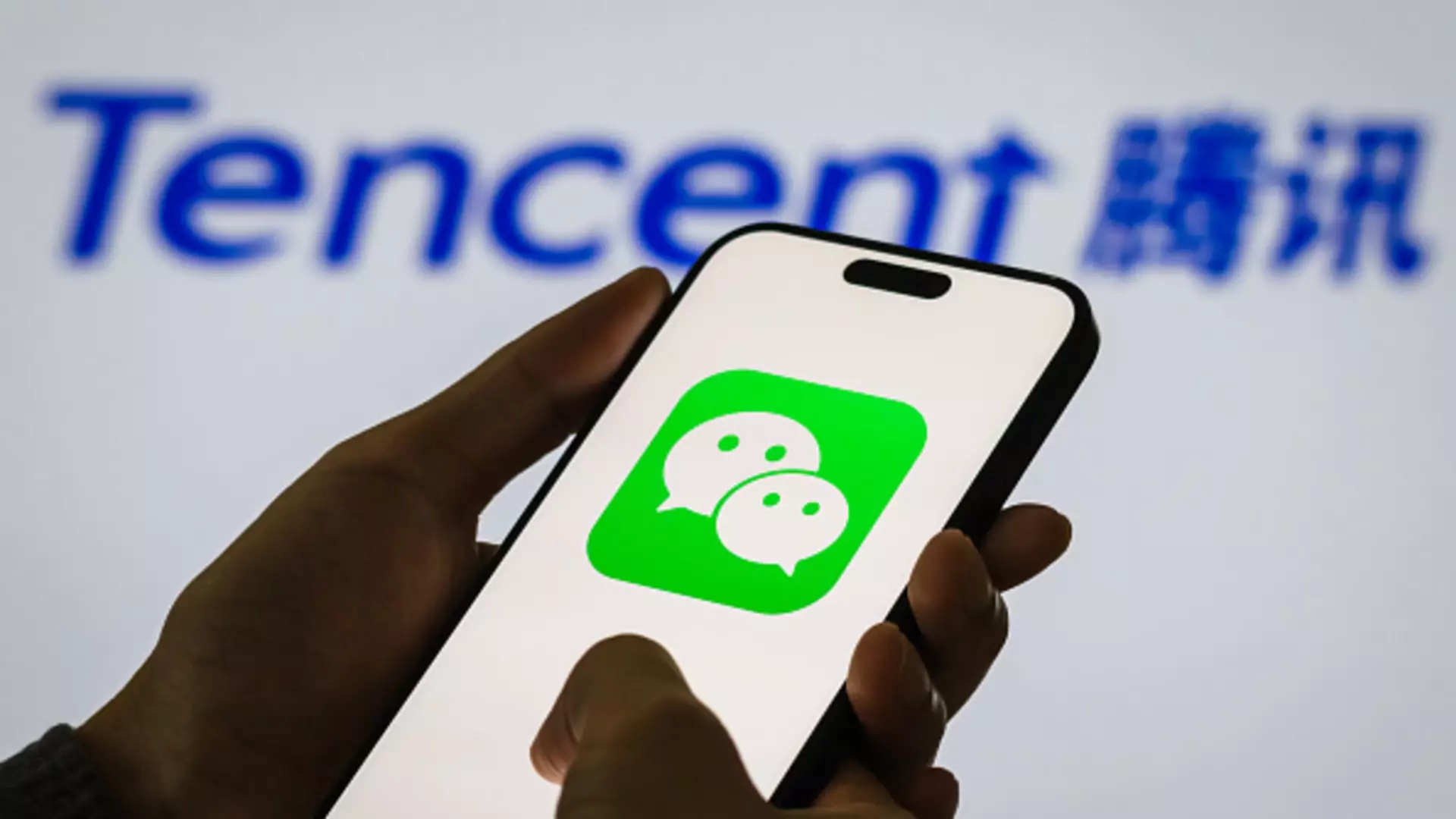In a financial landscape often riddled with uncertainties, Tencent’s fourth-quarter results for 2024 emerged as a beacon of optimism. The company reported an astonishing 90% profit growth year-on-year, attributed to skyrocketing gaming and advertising revenue. With total revenue hitting 172.4 billion Chinese yuan ($23.9 billion) and significant gains in key segments, Tencent’s performance outstripped Refinitiv’s forecasts. This figure reflects both an 11% overall increase and a 23% rise in domestic games revenue, suggesting that Tencent’s strategy to diversify its gaming portfolio, particularly with titles like Honour of Kings and Peacekeeper Elite, paid off handsomely. As global competition stiffens, it raises an interesting question: can such success be sustained?
AI Investments: The Triple Threat of Capital Expenditure
Tencent’s substantial investment in artificial intelligence, resulting in a staggering capital expenditure increase from 23.89 billion yuan in 2023 to 76.8 billion yuan in 2024, is worth scrutinizing. This remarkable leap indicates a shift in the company’s focus toward leveraging AI technologies to not only bolster existing business lines but also to carve out new revenue streams. Notably, the push for AI capabilities has made Tencent more competitive against rivals like Alibaba and Baidu. However, one must wonder: is this investment a wise commitment, or a hasty gamble?
The launch of various AI models, including the Hunyuan3D-2.0 for graphic rendering and the Turbo S for rapid user-query responses, showcases Tencent’s ambition to take a leading role in the AI landscape. While the company claims to have witnessed a doubling of AI cloud revenue, the actual figures remain undisclosed, leading to speculation on transparency. Are they merely riding the AI hype train without the necessary numerical backing, or does their strategic vision truly hold promise?
Gaming: The Stronghold and Its Fragility
As a titan in the gaming industry, Tencent’s fourth-quarter achievements are commendable. Their international gaming revenue rose by 15%, reflecting a successful strategy to penetrate markets beyond China. In a climate where domestic gaming revenue growth could be partly attributed to previous low baselines, Tencent stands to gain an edge through aggressive international expansion. However, the dependence on blockbuster games makes Tencent’s revenue vulnerable — are they at risk of becoming a one-hit wonder?
With macroeconomic uncertainty and regulatory hurdles looming in China, Tencent’s heavy reliance on gaming seems precarious. The company’s success heavily hinges on the reception of its games, which can be unpredictable. Consumers’ tastes can shift rapidly, particularly in a dynamic market saturated with options. While Tencent approaches this challenge head-on, the question remains: how long can they keep the momentum going?
Advertising: A Solid Backbone in an Evolving Market
Tencent’s advertising division saw robust growth, driven by the monetization of its WeChat user base. With over 1.38 billion active users, the potential for targeted advertising is immense. Tencent’s AI-powered advertising infrastructure further enhances this capability, making their offerings more attractive to advertisers. What’s particularly interesting is the adaptive persistence Tencent showcases in integrating advertising with its core applications, making it a vital revenue stream.
Nevertheless, the sustainability of this growth is uncertain. Given the fast-increasing competition, including newer players entering the advertising space, can Tencent maintain its existing client base while simultaneously expanding its market share? Advertisers’ loyalty is often fickle, and if competitors offer better options, the fallout could be significant for Tencent’s earnings.
Challenges Ahead: The Competitive Landscape
It’s imperative to consider the competitive backdrop as Tencent forges ahead with its AI vision. The emergence of startups like DeepSeek has intensified the race for AI innovation, compelling established giants to act quickly and decisively. With other major players like Alibaba rolling out new AI models, Tencent’s moves will need to surpass mere iterations of existing technology. It’s a high-stakes game, and the winner will inevitably be determined by who can pivot and innovate most adeptly.
Tencent’s focus on AI for enhancing both user experiences and internal operations positions it as a formidable contender, but at what cost? The cost of pushing for AI advancements may strain existing resources, particularly in sectors requiring robust hardware like cloud services, which have reportedly faced slow growth due to internal GPU demands. Balancing innovation while managing operational logistics presents a daunting challenge for the tech behemoth.
While Tencent’s recent quarterly performance is impressive, the long-term sustainability of their ventures into gaming, advertising, and AI remains fraught with potential pitfalls. As competitors ramp up their efforts, success in this high-stakes race will hinge on not just performance today, but strategic foresight and adaptability for the future. The world is watching, and Tencent’s next moves will be critical.

